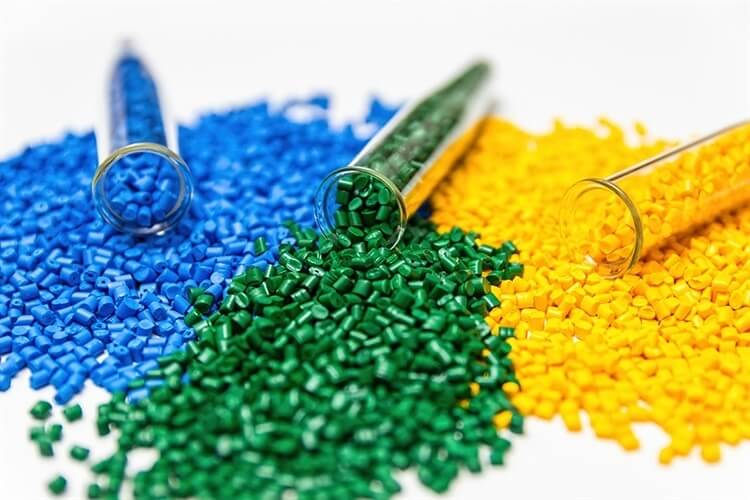Recognizing Polymers: The Scientific Research Behind Versatile Products
Recognizing Polymers: The Scientific Research Behind Versatile Products
Blog Article
Harnessing the Power of Polymers: Recognizing the Substantial Uses and Favorable Influences
Polymers, with their diverse chemical structures and homes, have come to be important in countless sectors, changing the way we connect with materials each day. From the product packaging that safeguards our food to the fibers that dress us, the applications of polymers are vast and differed. Beyond their common presence exists a much deeper understanding of their positive influences, reaching much past mere ease. As we explore the extensive usages of polymers and their function fit a much more sustainable, reliable, and cutting-edge future, it becomes noticeable that their capacity is as vast as the particles themselves.
Flexibility in Everyday Products
Polymers show amazing adaptability in a vast array of everyday products, demonstrating their vital role in modern culture. From the adaptable plastic casing of smartphones to the resilient fibers in clothes, polymers have actually reinvented the means we connect with items in our day-to-day lives. Among the most common uses of polymers is in packaging materials. Polyethylene, for instance, is extensively made use of in food product packaging as a result of its light-weight, sturdy, and moisture-resistant properties. Additionally, polymers play an important function in the auto market, where they are used in producing lightweight components that improve gas performance.
Eco-friendly polymers are utilized in stitches and implants, decreasing the threat of unfavorable responses in people. In the building sector, polymers are incorporated into paints, adhesives, and insulation products, boosting sturdiness and power effectiveness.
Sustainability in Product Innovations
With the ongoing emphasis on ecological awareness and resource effectiveness, the emphasis changes in the direction of sustainability in material advancements, mirroring an expanding commitment to responsible production practices across different markets. In current years, there has actually been a notable surge in the advancement of lasting products, specifically within the world of polymers. These cutting-edge materials are designed to reduce ecological effect throughout their whole lifecycle-- from sourcing resources to disposal or recycling.
One substantial facet of sustainability in product technologies is the concept of biodegradability. Biodegradable polymers have garnered attention for their ability to break down normally right into non-toxic by-products, minimizing waste and contamination. Furthermore, making use of recycled polymers originated from post-consumer or post-industrial sources is acquiring traction as a means of promoting a round economic climate and decreasing reliance on virgin materials.

Enhancing Efficiency in Design
Enhancing efficiency in design needs a careful combination of sophisticated technologies and exact approaches to optimize performance and effectiveness in different industrial applications. Polymers play her explanation an important function in this endeavor, offering a vast array of benefits that enhance the efficiency of design materials and parts.
One secret element of enhancing performance in design is the capability of polymers to improve durability and toughness. By integrating polymers into design styles, producers can develop lightweight yet robust frameworks that can stand up to high levels of stress and anxiety and stress. This characteristic is specifically important in industries such as aerospace, vehicle, and construction, where the need for strong yet light-weight products is critical.
Furthermore, polymers can likewise boost efficiency by providing thermal and chemical resistance, minimizing friction, and enhancing electrical conductivity. These buildings make polymers suitable for a variety of engineering applications, including seals, bearings, layers, and digital components. Polymers. By harnessing the one-of-a-kind homes of polymers, designers can optimize the performance of their layouts and create a lot more reliable and dependable items
Effect On Medical Improvements
Polymers have actually played a crucial duty in modern-day clinical developments, varying from drug delivery systems to tissue design. One of the crucial locations where polymers have actually made a significant influence is in the growth of naturally degradable sutures and implants.
Furthermore, polymer-based materials are significantly being made use of in clinical gadgets such as catheters, stents, and prosthetics because of their biocompatibility and resource flexibility. Polymer finishes on medical devices can protect against infections and boost total individual outcomes - Polymers. Additionally, innovations in nanomedicine have actually enabled making use of polymer nanoparticles for targeted link medicine shipment, enhancing the efficiency and minimizing negative effects of numerous medicines
Role in Environmental Preservation

Additionally, polymers are made use of in water treatment procedures, helping in the filtration and recycling of water resources. This assists in lowering water contamination and making certain access to clean water for both human intake and environmental health and wellness. Polymers additionally play a role in agriculture with the growth of biodegradable composts and controlled-release fertilizers, promoting sustainable farming techniques.
Verdict
To conclude, polymers have confirmed to be a versatile and vital product in numerous sectors, from everyday products to engineering and medical improvements. Their influence on sustainability, performance improvement, and ecological preservation is substantial. Understanding the comprehensive uses of polymers highlights their value in driving technology and progression in numerous areas. The ongoing expedition and utilization of polymers will certainly result in additional improvements and positive impacts on culture.
Report this page